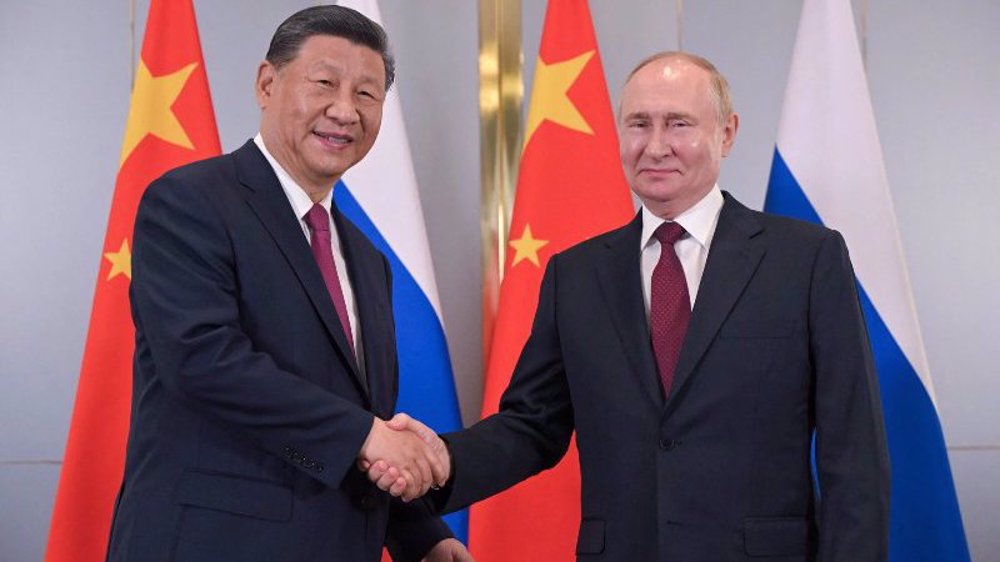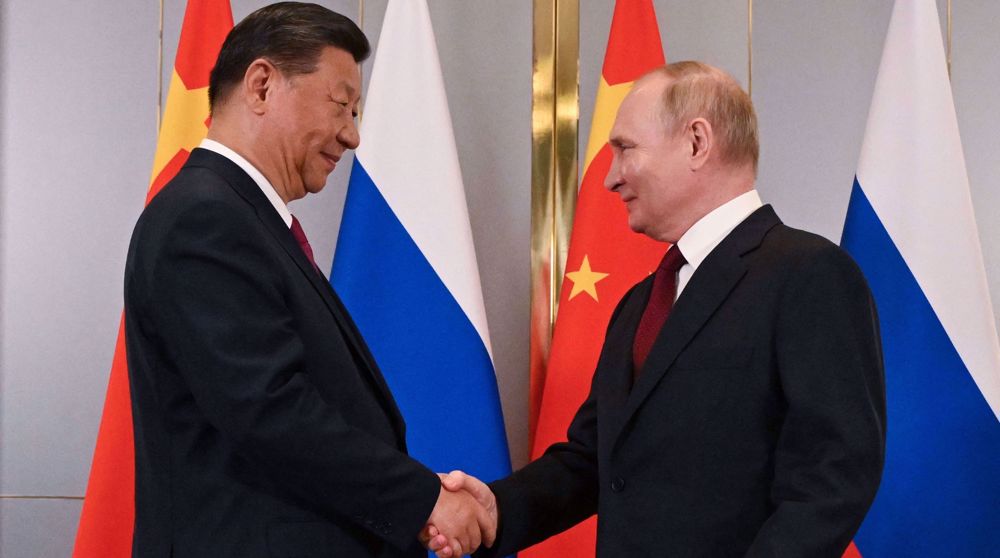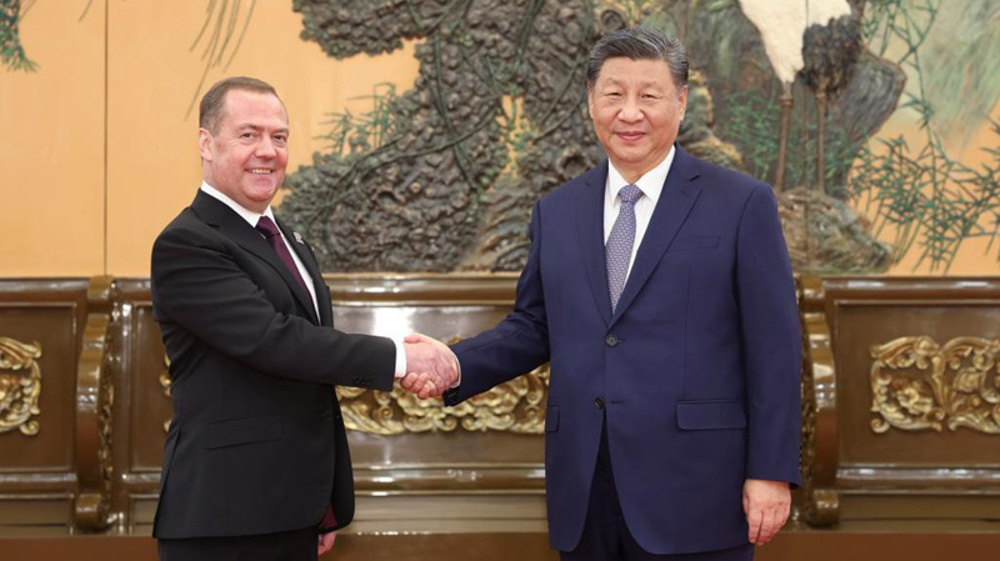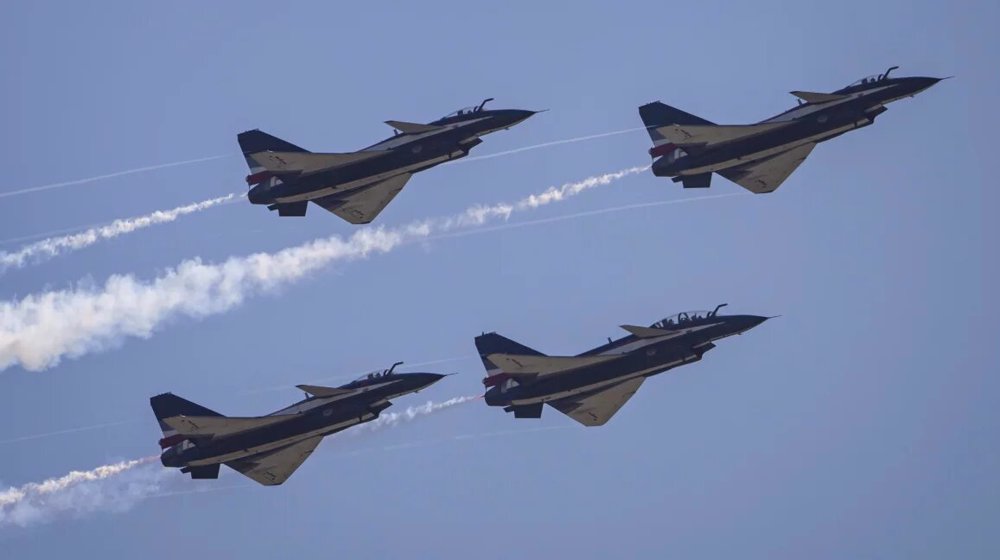Putin, Xi call for unity among Eurasian nations to challenge US
Russian President Vladimir Putin and his Chinese counterpart Xi Jinping have called for cooperation among members of the Shanghai Cooperation Organization (SCO) to resist the US-dominated order.
Putin and Xi, who are in the Kazakh capital of Astana for the second day of the SCO’s annual summit, on Thursday advocated enhanced security, political, and economic cooperation among Eurasian countries to counterweight Western alliances.
Established in 2001 by Russia and China, the SCO is a Eurasian political, economic, international security and defense organization that includes Central Asian nations, India, Pakistan and Iran. The nine-member bloc is designed as a counterweight to US hegemony in global affairs.
Both leaders, addressing the security summit, placed a premium on unity and resistance against external interference.
Russia’s goal is to ensure “a new architecture of cooperation, indivisible security and development in Eurasia, designed to replace the outdated Eurocentric and Euro-Atlantic models, which gave unilateral advantages only to certain states,” Putin said.
“The result of this world order is well known - a growing number of crises around the world, one of which of course is Ukraine,” Putin said in his address to the SCO.
Putin blamed the West for the Ukraine war, stressing that Russia was prepared to end Moscow’s “special military operation” in the ex-Soviet republic if Kiev and its supporters agreed to the Kremlin’s conditions for negotiations.
The Russian president also hailed the growing adoption of national currencies, rather than the dollar, in trade among SCO countries, and advocated for establishing a new payment system within the club.
Putin also underscored the emergence of a multipolar world order, where more countries support a fair global system that respects legal rights and traditional values, reflecting a broader shift away from Western dominance in global affairs.
“The multi-polar world has become reality. More and more countries support a fair world order and are ready to vigorously defend their legal rights and traditional values,” the Russian president stressed.
In his address to the SCO, Xi also emphasized the need for SCO members to consolidate unity and oppose external interference, cautioning against what he described as the West's “Cold War mentality.”
“SCO members should consolidate unity and jointly oppose external interference in the face of the real challenges of interference and division” the Chinese president said.
“We should work together to resist external interference … and firmly grasp our own future and destiny, as well as regional peace and development, in our own hands,” Xi said.
The group, the Chinese president said, must handle internal differences with peace, seek common ground, and resolve difficulties in cooperation.
On Wednesday, Putin and Xi censured US-led “hegemony” on the world stage. Moscow and Beijing are seeking to expand rival regional groups and alliances to push back against Western influence in Central Asia and the wider region.
The five Central Asian countries of Kazakhstan, Kyrgyzstan, Tajikistan, Turkmenistan and Uzbekistan are ex-Soviet republics and have historic cultural, linguistic and economic ties to Russia. Turkmenistan is not a member of the SCO, but the four other Central Asian states are. On Thursday, Belarus was formally added to the SCO as its tenth member.
VIDEO | Press TV's news headlines
VIDEO | Iran honors top Science Olympiad medalists
VIDEO | Austrians arrested at Gaza protest in Vienna
10 killed in bus crash in western Iran
VIDEO | One-man-band journalism with Civili
5 Israeli forces killed as Palestinian fighters face up to regime’s war machine
VIDEO | An insider's view of the country: Persian Tahini, Royan in Mazandaran
VIDEO | Israeli settler killed during strike against Tel Aviv; fresh aggression targets Yemen’s capital











 This makes it easy to access the Press TV website
This makes it easy to access the Press TV website